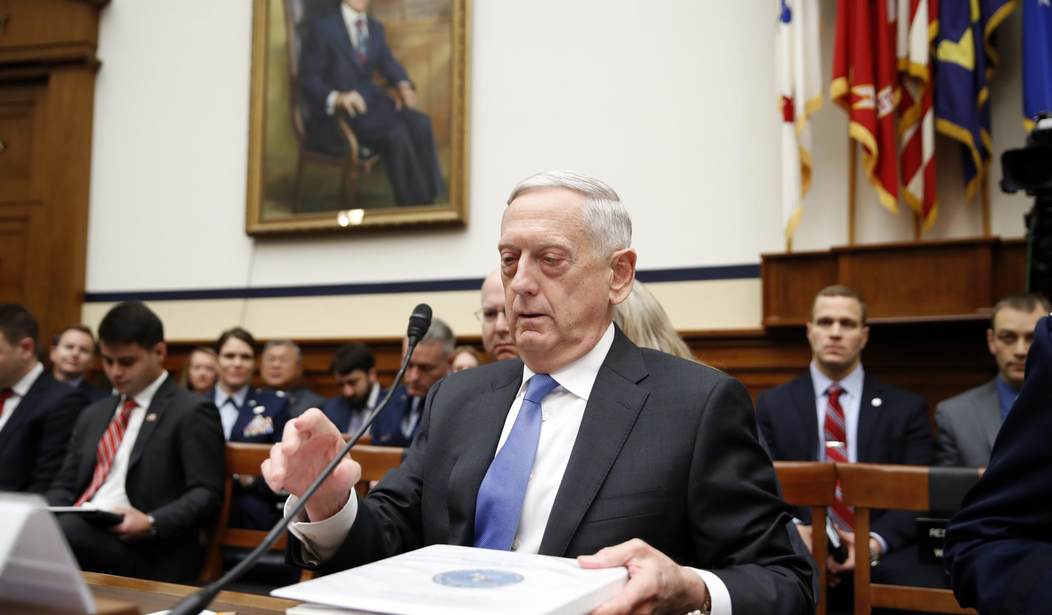WASHINGTON – Defense Secretary James Mattis called on Congress today to get out of the “spectator’s seat” and into the “driver’s seat” of the budget process and commit to sustained Defense spending that he said is vital to U.S. military readiness and security.
“I regret that without sustained, predictable appropriations, my presence here today wastes your time because no strategy can survive … without the funding necessary to resource it,” Mattis told the House Committee on Armed Services. He added later that Congress needs to regain control of the “Budget Control Act’s indiscriminate and automatic cuts.”
His comments came the same day that the House was expected to pass an appropriations bill for the Defense Department for the rest of the fiscal year, which included about $700 billion total spending. Senate Democrats remain opposed to the measure, citing a lack of non-defense and diplomatic resources. Mattis told lawmakers that the $700 billion figure is “sufficient.”
“With it, we can restore the competitive advantage or begin down the trail of restoring the competitive advantage that has been eroded,” he said.
Chairman Mac Thornberry (R-Texas) and Ranking Member Adam Smith (D-Wash.) during their opening remarks outlined the fundamental differences between parties over the spending bill.
“I think that the statement you just gave is the clearest, most direct, bluntest statement I have heard from any administration witness I have heard about the importance of Congress doing its job in a way that both Mr. Smith and I talked about in our opening statements,” Thornberry told Mattis after his testimony.
Thornberry commended the administration for its attempt to bring structure and rationality to America’s wide-ranging national security efforts in “what is a surely a dangerous and volatile world.” He said the Armed Services deserve the best training and resources that the U.S. has to offer, and anything less is morally wrong.
While Smith agreed with Thornberry’s assessment on a “paramount obligation,” he accused Republicans of creating a “self-fulfilling prophecy” in which an arms race is fueled through cuts to diplomatic resources that could just as well keep the peace.
“We’re going to give up on diplomacy and focus on having as many weapons as is humanly possible to make sure that they’re deterred. Dialogue is incredibly important to deterrence,” Smith said. “To sit here and say ‘we’re going to stand up and spend all this money on defense because it would just be wrong to prioritize other things’ is patently absurd and insulting. Defense is incredibly important. It’s not the only important thing in keeping the peace.”
Smith said that if the budget is passed, Congress is essentially saying that the Department of Homeland Security, Justice Department and State Department don’t matter. Mattis responded that there needs to be regular order across all departments, but “right now, we’re creating security vulnerabilities that cannot be denied.”
“I hope we get a budget agreement for all aspects of government,” Thornberry said. “We can do that, and we should.”
Smith said that overall the budget picture doesn’t add up, and “I worry that ultimately that will wind up costing the men and women who serve, costing our ability to give them the training and equipment they need to carry out the mission that we all hear that we need.”
Mattis is scheduled this week to visit the First Security Assistance Brigade in Fort Benning, Ga., as they prepare for deployment to Afghanistan. He said that unit is “signing a blank check to the American people with their lives,” despite Congress’ “abrogation” of constitutional responsibility to provide sufficient, stable funding.
The Defense secretary warned against China and Russia’s insistence on attempting to create a world at the mercy of their authoritarian models, and persistence from rogue regimes like North Korea and Iran in continuing to carry out outlaw actions that undermine regional and global stability. Meanwhile, ISIS continues to sell hatred, incite violence and murder innocent people, he added.
“Across the globe, democracies are taking notice,” Mattis said. “Those who would threaten America’s experiment in democracy must know: If you threaten us, it will be your longest and worst day.”
He added that the U.S. cannot fight tomorrow’s conflicts with yesterday’s technology and equipment.









Join the conversation as a VIP Member